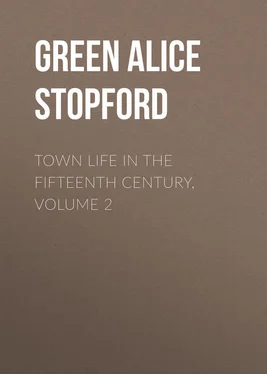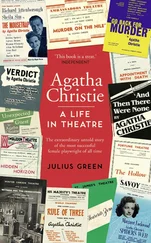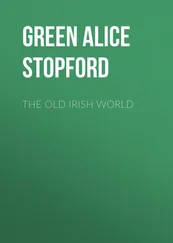Alice Green - Town Life in the Fifteenth Century, Volume 2
Здесь есть возможность читать онлайн «Alice Green - Town Life in the Fifteenth Century, Volume 2» — ознакомительный отрывок электронной книги совершенно бесплатно, а после прочтения отрывка купить полную версию. В некоторых случаях можно слушать аудио, скачать через торрент в формате fb2 и присутствует краткое содержание. Жанр: literature_19, foreign_antique, foreign_prose, Историческая проза, на английском языке. Описание произведения, (предисловие) а так же отзывы посетителей доступны на портале библиотеки ЛибКат.
- Название:Town Life in the Fifteenth Century, Volume 2
- Автор:
- Жанр:
- Год:неизвестен
- ISBN:нет данных
- Рейтинг книги:5 / 5. Голосов: 1
-
Избранное:Добавить в избранное
- Отзывы:
-
Ваша оценка:
- 100
- 1
- 2
- 3
- 4
- 5
Town Life in the Fifteenth Century, Volume 2: краткое содержание, описание и аннотация
Предлагаем к чтению аннотацию, описание, краткое содержание или предисловие (зависит от того, что написал сам автор книги «Town Life in the Fifteenth Century, Volume 2»). Если вы не нашли необходимую информацию о книге — напишите в комментариях, мы постараемся отыскать её.
Town Life in the Fifteenth Century, Volume 2 — читать онлайн ознакомительный отрывок
Ниже представлен текст книги, разбитый по страницам. Система сохранения места последней прочитанной страницы, позволяет с удобством читать онлайн бесплатно книгу «Town Life in the Fifteenth Century, Volume 2», без необходимости каждый раз заново искать на чём Вы остановились. Поставьте закладку, и сможете в любой момент перейти на страницу, на которой закончили чтение.
Интервал:
Закладка:
As we look at this mighty volume of commerce pouring from town to town with a steady force that swept all obstacles out of its channel, we may well begin to doubt whether the burghers of the middle ages were indeed stupidly putting their necks under a hard yoke of arbitrary law, and wilfully destroying their own prospects by preferring bondage to freedom, or sacrificing general prosperity to local greeds. The mediæval system, until it began to fall into the decay that precedes death, was in fact the minister to fine and worthy ends. In a society where few rights existed save by way of privilege, the trading “communitas,” whether the borough or the guild, did actually serve as the great engine for the abolition of restrictions, for extending privilege, and throwing open a national commerce. There was a time when every new chartered association was an actual widening of free trade; and a man entered the community of a town for the same reasons that he might to-day take out letters of naturalization in a country where his business lay – not to be ensured against competition, but to share in all commercial privileges which it had won by treaty, and in case of peril to own the protection of its flag. Each town had its own privileged “community” and recognized the “community” of the neighbouring borough; and it was by this mutual recognition only that intermunicipal treaties became possible, or that any borough could ascertain the limits of its responsibility for members in foreign fair or market, could pledge itself to the fulfilment of its treaties, or have any guarantee for redress in case of wrong. [125] See Calendar of Letters from Corporation of London. 1350-1370, ed. by Dr. Sharpe.
In the detailed municipal legislation about debt and surety and mutual responsibility, about punishment of violence, the suppression of an individual traitor to the common weal, the protection of a community from false dealing of any of its confederate states, we may plainly see how local monopolies had come to be far more significant from the point of view of public order and general intercourse than of private wealth. Monopoly and protection in fact had put on the garb of a necessary office and service. Instead of gaolers who kept the trader fast bound at home, they were the strong guardians who attended him as he went abroad, the fore-runners who cut down before him the chains that barred the highway, the ministers of justice that tracked out in his service the fraudulent debtor, the pledges to him in every danger of the vigilance and power of his native town. To each community they were the bonds of a civil order and the tokens of a corporate fidelity.
CHAPTER III
THE TOWN TRADER
With the appearance of the new commercial society in the boroughs we feel that the history of modern England has begun. By the formation of a prosperous middle class, a new type of character was introduced into English life – a type which lay altogether outside old traditions, and was as far from imitating the confident superiority of classes that held the mastery by traditional right, as it was from preserving the simplicity and resignation of the masses of those who confessed a hereditary duty of subjection. The mediæval burgher was trained in a rough school. Owing nothing to class or family or patron, roughly judged and consigned to his own place in the ranks by the test of competition in its simplest form, the industrial rivalry between man and man, the trader had no helper if he did not help himself. Merchants burdened with little capital, like the trader pictured by Holbein in his Dance of Death carrying all their store of wealth bound up on their persons, and free to change their residence as often as commerce offered brighter prospects elsewhere, wandered from town to town, leaving no trade unlearned, no fair unvisited at home, and no market forgotten abroad. Craftmasters equally destitute of money had to trust to their own wit in the struggle for life, and became practised in vigilance and patience, thrift and caution, in the contempt of hardship, in strenuous and ceaseless activity. The discipline of trade was severe, and the conditions of prosperity hard. If a gentleman intruder appeared among these men hoping to find an easy way to wealth in the more respectable forms of business to which the county families alone condescended, his experiences were watched with contemptuous good humour by the burghers, who knew the hardships of the road.
“I have made many a knight both mercer and draper,”
says the merchant in a mediæval poem,
“Paid never for their prenticehood not a pair of gloves;
But chaffered with my chevesance, [bargains] cheved [prospered] seldom after.” [126] Piers Ploughman. Pass vii. 250.
The feeble and incompetent fell away before the severity of the tests applied, and the trading class was constantly undergoing change. Perhaps some sturdy Jewish stock, like the Phillips of Birmingham, held their own for three or four centuries; [127] These can be traced from 1285 to the time of James I.; they were probably Jews who had come with the Conqueror and were allowed to get land. Survey of Birmingham, 50.
but more commonly families spring up into importance and for one or two generations hold the first place in the payment of taxes, and have control of the chief offices of government, till after the third generation the name disappears from the account books. [128] For example William Hollingbroke of Romney, whose wife Joanna sold blankets in 1373, was one of the members sent to Parliament and headed the list of taxpayers in a ward named after him Hollingbroke Ward from 1384 till 1401. Then his widow took his place till she retired from business in 1404, and the once opulent family, for a time represented by a single trader Stephen, seems finally to have become extinct in 1441. The chief position in local trade then passed to the Stuppeneys who settled in the town in 1436 and whose local fame is still recalled by the fact that even now the yearly election of the Mayor of Romney takes place in the church of S. Nicholas at the tomb of one of them who was Jurat of the town.
The family has died out, or broken down under the stress of competition, or it has settled upon an estate bought in the country and become merged among the county squires; and some new stock comes in to fight its way with fresh energy and enterprise.
In picturing to ourselves the life of a mediæval borough it sometimes happens that, with our constant tendency to exaggerate the strangeness of the past, we perceive only an existence so straitened and humble in condition that all sense of distinctions is lost, and we create a false monotony, supposing that because in that remote world business was carried on in a narrow sphere men’s fortunes were therefore more equal, or that the general level of commercial prosperity was necessarily more uniform than it is now. But everything we know of town life, from the moment when the boroughs come into view, forces home the conviction of an inequality of circumstance and wealth as sensible as any that we recognize in the later Middle Ages; of a society which was at no time either simple or homogeneous, and where the plutocrat and capitalist held as imposing a place and bore himself in as lordly a fashion, considering the limits of his stage, as his descendants of modern times. The secret of wealth was first found, as it was long kept, by the butchers, brewers, and victuallers of one kind or another. There were in every borough men like Andrew Bate, the butcher of Lydd, who became “farmer of Dengemarsh,” and kept the town in a ferment for years, whether with his herds of cattle which overran the marsh pastures and trespassed on his neighbours’ fields or commons so that they could not “occupy in peace,” and would rather sell their land than be so “grievously hurted by the cattle of Andrew Bate;” or with his heavy tolls for the “Western men” who came to dry their whiting on the nesse, and found him a hard “extortioner” who “had driven away half Dengemarsh”; above all with his ceaseless activity in extending his borders over the doubtful limits that parted the lands of the town from the lands of the Abbot; so that though the corporation in 1462 insisted on a careful marking out of their frontiers, and years later were labouring to have him supplanted in Dengemarsh by another burgher, Bate was evidently victorious, and ended by seeing his brother, who had been trained in the law probably with this object, appointed Town Clerk and practical controller of the affairs of Lydd. [129] Hist. MSS. Com. v. 523-531.
In like manner the rich fishmonger, Daniel Rowe of Romney, who sent his oysters, crabs, lampreys, and trout to London, the eastern counties, Cambridge, and along the valley of the Thames as far as Wallingford, and fetched back in their stead boars, calves, porkers, and bacon, ended by being made Town Clerk of Romney [130] Between 1353 and 1380. Ibid. vi. 545. Ibid. iv. 1, 424-8. Ibid. v. 533. The mayor of Liverpool, who in 1380 had property to the value of £28 6 s. 4 d. , made up of domestic utensils, grain in store, wheat sown, nine oxen and cows, six horses, and eighteen pigs, was no doubt a very rich man in his own borough. Picton’s Mem. Liverpool, i. 30.
– as indeed became an educated man, who kept his daybooks, where all the travelling expenses of men and horses were carefully set down, in Latin. So also the Romney vintner, James Tyece, who began life in a very small way in 1387, was important enough in 1394 to be sent on a deputation to the archbishop; in 1398 he was Jurat, and in 1414 held so much land that his property was made into a separate ward named after him in 1432. [131] Hist. MSS. Com. v. 534, 535, 536, 539, 541-3.
Интервал:
Закладка:
Похожие книги на «Town Life in the Fifteenth Century, Volume 2»
Представляем Вашему вниманию похожие книги на «Town Life in the Fifteenth Century, Volume 2» списком для выбора. Мы отобрали схожую по названию и смыслу литературу в надежде предоставить читателям больше вариантов отыскать новые, интересные, ещё непрочитанные произведения.
Обсуждение, отзывы о книге «Town Life in the Fifteenth Century, Volume 2» и просто собственные мнения читателей. Оставьте ваши комментарии, напишите, что Вы думаете о произведении, его смысле или главных героях. Укажите что конкретно понравилось, а что нет, и почему Вы так считаете.












